MercoPress. South Atlantic News Agency
Tag: Yuan
-
Thursday, August 24th 2023 - 11:01 UTC
Brazil's Finance Minister proposes trade with Argentina in yuan

Brazil's Finance Minister Fernando Haddad said Wednesday in Johannesburg during the 15th BRICS Summit that Argentina might finance its foreign trade with his country by using Chinese yuan instead of US dollars, Agência Brasil reported.
-
Friday, July 28th 2023 - 10:45 UTC
Argentina: “Blue” dollar breaks another record
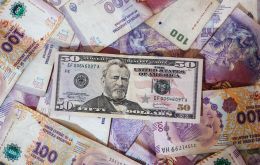
The so-called “blue” (a euphemism for “black market”) dollar in Argentina broke another record Thursday and closed at AR$ 553, it was reported in Buenos Aires. In some provinces such as Buenos Aires and Santa Fe the quotation went up to AR$558, according to local media.
-
Wednesday, July 5th 2023 - 10:32 UTC
Bolivian leader in favor of switching from US dollars to yuan

Luis Arce Catacora, president of Bolivia, a Mercosur associate nation that has long been trying to become a full member of the bloc, said Tuesday during the 62nd Summit in Puerto Iguazú (Argentina) that it was time we “move[d] away from the [US] dollar to base ourselves on the [Chinese] yuan and strengthen our own currencies.”
-
Friday, June 30th 2023 - 10:28 UTC
Argentina to pay the IMF with Chinese money
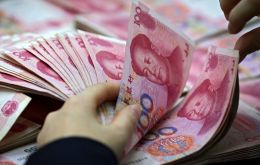
Argentine authorities Thursday announced that ”the payment of 2.7 billion dollars to the IMF corresponding to the second quarter will be made, partly in Special Drawing Rights (SDR) of the Treasury and partly with yuan, without using Central Bank reserves.”
-
Wednesday, June 21st 2023 - 04:34 UTC
Short of US dollars, Argentina advances towards trading and hoarding in Yuan

Argentina is increasing its use of Yuan to pay for imports from China, following the renewal and expansion of a currency swap agreement with Beijing. The use of the Chinese currency in bilateral trade amounted to 1.075 billion Yuan (US$ 150.5 million) in May this year. In the first ten business days of June, transactions worth 2.045 billion yuan ($286.3 million) were recorded, according to the Central Bank of Argentina Argentine Central Bank’s report on June 15.
-
Monday, May 16th 2022 - 09:26 UTC
Weighting SDR's currency basket, Dollar and Yuan up; Euro, Yen and Pound down

IMF increased the Chinese Yuan's weighting in the Special Drawing Rights (SDR) currency basket to 12.28% from 10.92% in its first regular review of the SDR valuation since the Chinese currency was first included in the basket in 2016, the Chinese central bank, PCB, reported on Sunday.
-
Saturday, February 26th 2022 - 09:54 UTC
Russia and China bilateral trade moving to the Yuan, gradually replacing the US dollar

The Ukraine war which has impacted on Russian markets and particularly the plunge of the ruble, should not be a major cause of concern for China-Russia bilateral trade since a growing percentage of business is done with the Chinese currency Yuan, as the two countries move towards de-dollarization, according to financial circles in Beijing.
-
Saturday, October 16th 2021 - 09:15 UTC
Argentina has become a Chinese Yuan testing ground in trade and investment
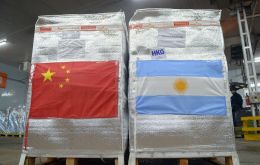
Following several currency swaps by which China has helped to support the Argentine central bank depleted international reserves, the administration of president Alberto Fernandez intensified relations with Beijing and a year ago allowed transactions between the two countries to be made in Yuan.
-
Tuesday, July 27th 2021 - 07:39 UTC
Chinese currency takes third place in global trade
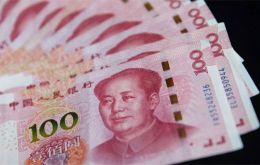
The Chinese yuan has taken third place among internationally-traded currencies in 2020, according to a Renmin University of China report released over the weekend, which also foresees it may continue to expand.
-
Friday, October 2nd 2020 - 09:01 UTC
Argentine central bank will promote Chinese Yuan for foreign trade negotiations
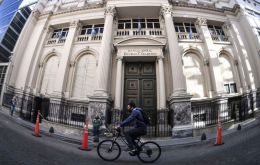
Argentina's central bank said on Thursday that it would allow a managed float of the peso currency and abandon its current “uniform daily devaluation” strategy as it seeks to adapt its monetary policy amid sharpening economic turmoil.
